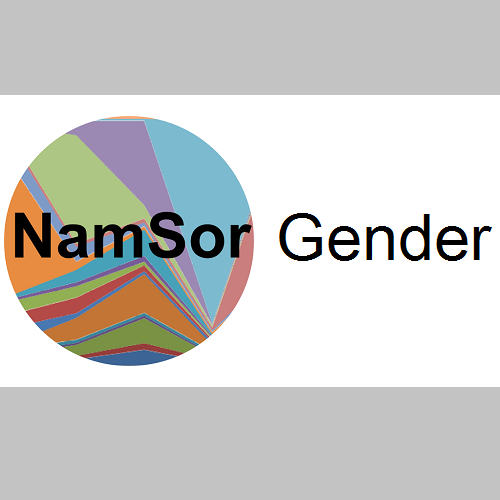Mock sample for your project: Geneea Natural Language Processing API
Integrate with "Geneea Natural Language Processing API" from geneea.com in no time with Mockoon's ready to use mock sample

Geneea Natural Language Processing
geneea.com
Version: 1.0
Integrate third-party APIs faster by using "Geneea Natural Language Processing API" ready-to-use mock sample. Mocking this API will allow you to start working in no time. No more accounts to create, API keys to provision, accesses to configure, unplanned downtime, just work.
Improve your integration tests by mocking third-party APIs and cover more edge cases: slow response time, random failures, etc.
Description
Authentication
For all calls, supply your API key. Sign up to obtain the key .
Our API supports both unencrypted (HTTP) and encrypted (HTTPS) protocols.
However, for security reasons, we strongly encourage using only the encrypted version.
The API key should be supplied as either a request parameter user_key or in Authorization header.
Authorization: user_key
API operations
All API operations can perform analysis on supplied raw text or on text extracted from a given URL.
Optionally, one can supply additional information which can make the result more precise. An example
of such information would be the language of text or a particular text extractor for URL resources.
The supported types of analyses are:
lemmatization ⟶
Finds out lemmata (basic forms) of all the words in the document.
correction ⟶
Performs correction (diacritization) on all the words in the document.
topic detection ⟶
Determines a topic of the document, e.g. finance or sports.
sentiment analysis ⟶
Determines a sentiment of the document, i.e. how positive or negative the document is.
named entity recognition ⟶
Finds named entities (like person, location, date etc.) mentioned the the document.
Encoding
The supplied text is expected to be in UTF-8 encoding, this is especially important for non-english texts.
Returned values
The API calls always return objects in serialized JSON format in UTF-8 encoding.
If any error occurs, the HTTP response code will be in the range 4xx (client-side error) or
5xx (server-side error). In this situation, the body of the response will contain information
about the error in JSON format, with exception and message values.
URL limitations
All the requests are semantically GET. However, for longer texts, you may run into issues
with URL length limit. Therefore, it's possible to always issue a POST request with all
the parameters encoded as a JSON in the request body.
Example:
POST /s1/sentiment
Content-Type: application/json
{"text":"There is no harm in being sometimes wrong - especially if one is promptly found out."}
This is equivalent to GET /s1/sentiment?text=There%20is%20no%20harm...
Request limitations
The API has other limitations concerning the size of the HTTP requests. The maximum allowed size of any
POST request body is 512 KiB. For request with a URL resource, the maximum allowed number of
extracted characters from each such resource is 100,000.
Terms of Service
By using the API, you agree to our
Terms of Service Agreement.
More information
The Interpretor Public Documentation
Other APIs in the same category

Asynchronous Speech-To-Text API Documentation
For a real-time speech to text solution, use Rev.ai's Streaming API.
Base Endpoint
The base url for this version of the API is
> https://api.rev.ai/speechtotext/v1
All endpoints described in this documentation are relative to this base url.
Quick Start
Follow the getting started checklist
Get your Access Token
You can generate your access token on the settings page of your account. This access token only needs to be generated once and never expires. You can re-generate your token, however this will invalidate the previous token.
Submit a File
To submit an audio file for transcription to Rev.ai:
Retrying Failed Requests
Some errors can be resolved simply by retrying the request. The following error codes are likely to be resolved with successive retries.
| Status Code | Error |
|---|:---|
| 429 | Too Many Requests |
| 502 | Bad Gateway |
| 503 | Service Unavailable |
| 504 | Gateway Timeout |
Note: With the exception of the 429 status code, it is recommended that the maximum number of retries be limited to 5 attempts per request. The number of retries can be higher
for 429 errors but if you notice consistent throttling please contact us at.

api.datumbox.com

VisibleThread API
The VisibleThread b API provides services for analyzing/searching documents and web pages.
To use the service you need an API key.
Contact us at [email protected] to request an API key.
The services are split into Documents and Webscans.
Documents
Upload documents and dictionaries so you can :
Measure the readability of your document
search a document for all terms from a dictionary
retrieve all paragraphs from a document or only matching paragraphs
Webscans
Analyze web pages so you can:
Measure the readability of your web content
Identify & highlight content issues e.g. long sentences, passive voice
The VisibleThread API allows you to programatially submit webpage urls to be scanned,
check on the results of a scan, and view a list of previous scans you have performed.
The VisibleThread API is a HTTP-based JSON API, accessible at https://api.visiblethread.com
Each request to the service requires your API key to be successful.
Getting Started With Webscans
Steps:
Enter your API key above and hit Explore.
Run a new scan by submitting a POST to /webscans (title and some webUrls are required).
The scan runs asynchronously in the background but returns immediately with a JSON response containing an "id" that represents your scan.
Check on the status of a scan by submitting GET /webscans/{scanId}, if the scan is still in progress it will return a HTTP 503. If
it is complete it will return a HTTP 200 with the appropriate JSON outlining the urls scanned and the summary statistics for each url.
Retrieve all your previous scan results by submitting GET /webscans.
Retrieve detailed results for a url within a scan (readability, long sentence and passive language instances) by submitting
GET /webscans/{scanId}/webUrls/{urlId} (scanId and urlId are required)
Getting Started With Document scans:
Steps:
Enter your API key above and hit Explore
Run a new scan by submitting a POST to /documents (document required). The scan runs asynchronously in the background but returns
immediately with a JSON response containins an "id" that represents your scan
Check on the status of a scan by submitting GET /documents/{scanId}, if the scan is still in progress it will return a HTTP 503. If
it is complete it will return a HTTP 200 with the appropriate JSON outlining the document readability results. It will contain detailed
analysis of each paragraph in the document
Retrieve all your previous scan results by submitting GET /documents
Searching a document for keywords
The VisibleThread API allows you to upload a set of keywords or a 'dictionary'. You can then perform a search of a already uploaded document
using that dictionary
Steps (Assuming you have uploaded your document using the steps above):
Upload a csv file to use as a keyword dictionary by submitting a POST to /dictionaries (csv file required). This returns a JSON
response with the dictionary Id
Search a document with the dictionary by submitting a POST to /searches (document id and dictionary id required).
Get the resuhlts of the search by submitting **GET /searches/{docId}/{dictionaryId}" . This will return JSON response containing
detailed results of searching the document using the dictionary.
To view the list of all searches you have performed submit a GET /searches.
Below is a list of the available API endpoints, documentation & a form to try out each operation.

FunTranslations Braille API
Fake identity generation API
Einstein Vision and Einstein Language

Wordnik
Exude API Service

